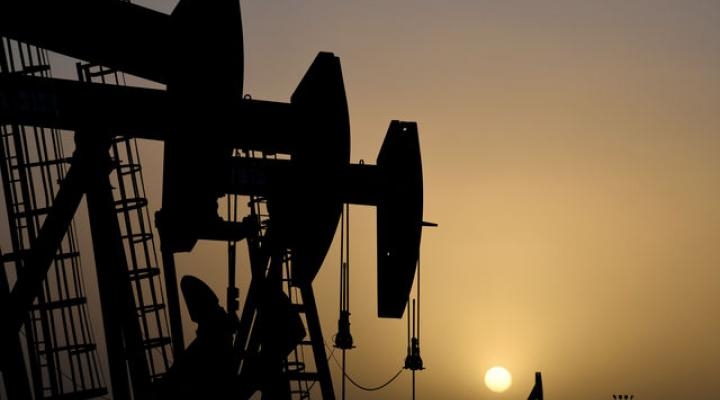US eases sanctions on Venezuela

October 23, 2023 On Wednesday, October 18, 2023, the US Department of the Treasury’s Office of Foreign Assets Control (“OFAC”) eased sanctions on Venezuela, including those relating to Venezuela’s oil, gas, and gold sectors, by issuing several new General Licenses (“GLs”). The US government action comes in response to commitments made by representatives of Venezuelan President Maduro and the Unitary Platform, an opposition coalition, in respect of future elections in Venezuela. In issuing the licenses, guidance documents, and Frequently Asked Questions (“FAQs”), the US Government highlighted that it retains authority to amend or revoke the new authorizations should the Maduro government fail to follow through on these commitments. Furthermore, each new authorization (described below) retains existing restrictions on property blocked under the Venezuela sanctions program.
Oil and gas
OFAC has temporarily suspended sanctions that have applied to oil and gas sector operations in Venezuela, including transactions involving Petróleos de Venezuela S.A. (“PdVSA”), a Venezuelan state-owned oil and natural gas company, and any of its 50%-or-greater owned entities (GL 44). The authorization applies through April 18, 2024 and covers:
Production, listing, sale, and exportation of oil or gas from Venezuela, and the provision of related goods and services;
Payment of invoices for goods or services related to Venezuelan oil and gas sector operations;
New investment in Venezuelan oil and gas sector operations; and
Delivery of oil and gas from Venezuela to creditors of the government of Venezuela (including PdVSA and any of its 50%-or-greater owned entities), for debt repayment purposes.
Of note, this temporary suspension is applicable to all entities operating in the oil and gas sector in Venezuela regardless of whether they are owned directly or indirectly by PdVSA, with one critical caveat – these authorizations do not apply to transactions with entities in Venezuela that are owned, controlled by, or in a joint venture with any entity located in the Russian Federation; nor do the authorizations permit transactions associated with new investments in Venezuelan oil and gas operations made by persons or entities located in the Russian Federation.1
Transactions involving Minerven
With the objective of reducing black-market trading in gold, OFAC authorized all transactions with Venezuela state-owned gold mining company, CVG Compania General de Mineria de Venezuela CA (“Minerven”), and its 50%-or-greater owned entities, that were previously prohibited (GL 43).
To date, Minerven has been the only entity designated by OFAC for operating in the gold sector of the Venezuelan economy pursuant to Executive Order 13850. Given the recent democratic progress in Venezuela, OFAC has stated that it does not intend to target persons solely for operating in the gold sector of the Venezuelan economy.
Venezuela sovereign bonds on the secondary market
OFAC removed the secondary market trading ban involving certain Venezuelan sovereign bonds and pre-2017 debt or equity of PdVSA (GLs 3I and 9H). US persons can now engage in all transactions related to, provide financing for, and otherwise deal in bonds issued by the Venezuela government on the secondary market. In addition, US persons can now engage in all transactions ordinarily incident and necessary to dealings in any debt of, or equity in, PdVSA or any of its 50%-or-greater owned entities, issued prior to August 25, 2017.2 For example, the authorization permits transactions related to the receipt and processing of interest or principal payments, and acting as a custodian for US and non-US persons’ holdings in the bonds of the government of Venezuela or in PdVSA securities. The authorization also allows for the divestment of any such holdings, including to US persons. However, all sanctions relating to trading in the primary Venezuelan bond market remain in place.
Other authorizations
OFAC delayed the authorization of transactions related to, the provision of financing for, and other dealings in PdVSA 2020 8.5 percent bonds (GL 5M), until January 18, 2024. Until that date, US persons remain prohibited from engaging in transactions related to the sale or transfer of CITGO shares in connection with the PdVSA 2020 8.5 percent bond.
OFAC has authorized all transactions ordinarily incident and necessary to the repatriation of Venezuelan nationals from non-US jurisdictions in the “Western Hemisphere”3 to Venezuela (GL 45), involving Consorcio Venezolano de Industrias Aeronauticas y Servicios Aereos, S.A. or any of its 50%-or-greater owned entities.
Important limitations
While the authorizations represent a notable expansion of the types of transactions across various Venezuelan sectors that are now permissible under US sanctions, several key restrictions remain in place.
OFAC has not authorized transactions involving new debt, such as the provision of loans to PdVSA, unless the debt is related to the payment of invoices or repayment of debt via the delivery of oil or gas. Authorized transactions involving financial institutions are restricted to transactions with Banco Central de Venezuela, and Banco de Venezuela SA Banco Universal; transactions with any other financial institution blocked pursuant to EO 13850 remain prohibited. Additionally, transactions with property, persons, or entities otherwise blocked pursuant to the Venezuelan sanctions program or other authority remain prohibited.
Sanctions implications
The recent OFAC action marks a significant reversion of harsh US sanctions on Venezuela government that have existed for more than a decade. These sanctions are consistent with OFAC’s prior authorization to Chevron Corporation to resume limited oil extraction operations in Venezuela in November 2022 (GL 41), a series of extended authorizations for several US oil companies to maintain operations in Venezuela (GL 8K), and the US State Department allowing Repsol and Eni to engage in oil swaps as payment in kind for debts owed them by PdVSA in mid-2022. Easing of Venezuela oil production sanctions could potentially bring more supply to the market experiencing shortfalls in connection with Russia-related sanctions and OPEC+ and Saudi Arabia cutting down their flow of oil.
Persons located in the Russian Federation has been interpreted by OFAC to include individuals that are ordinarily residents in the Russian Federation and entities incorporated or organized under the laws of the Russian Federation. ↩
“Debt” includes bonds, promissory notes, and other receivables.↩
See https://www.state.gov/bureaus-offices/under-secretary-for-political-affairs/bureau-of-western-hemisphere-affairs/. ↩
